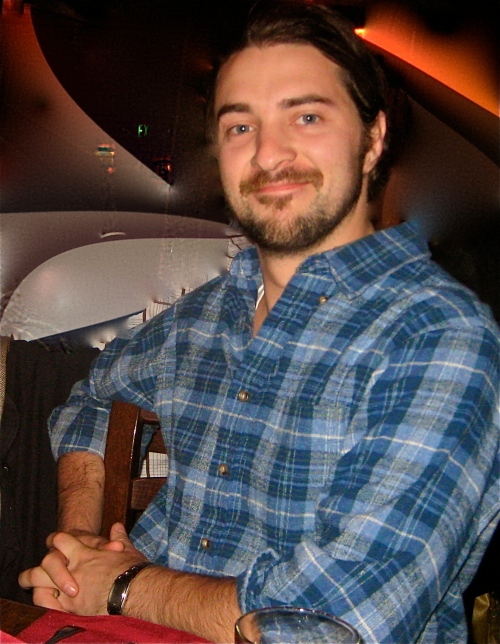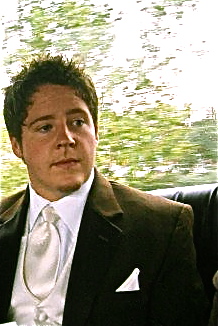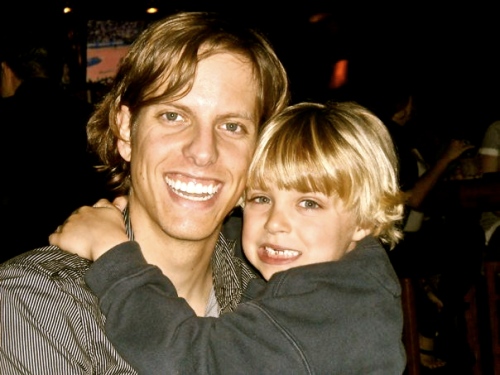 Many stories are universal. They could happen any time, any place. They speak to the common human condition, the themes are instantly recognized around the globe. Love stories are often like this. Boy meets girl, boy woos girl, obstacle prevents boy from being with girl, boy overcomes obstacle, boy and girl live happily ever after. The same can many times be said of heroic stories that follow the 12 step arc. Setting separates one from the other, but that setting isn’t the crux of the story. It’s more ornamentation. The hero would still be a hero anywhere else. Set Rambo in the wild west or Middle Earth or “a long time ago in a galaxy far far away,” and he’d still be one bad-ass motha sucka.
Many stories are universal. They could happen any time, any place. They speak to the common human condition, the themes are instantly recognized around the globe. Love stories are often like this. Boy meets girl, boy woos girl, obstacle prevents boy from being with girl, boy overcomes obstacle, boy and girl live happily ever after. The same can many times be said of heroic stories that follow the 12 step arc. Setting separates one from the other, but that setting isn’t the crux of the story. It’s more ornamentation. The hero would still be a hero anywhere else. Set Rambo in the wild west or Middle Earth or “a long time ago in a galaxy far far away,” and he’d still be one bad-ass motha sucka.
For other stories, the location is essential. This is true of the exotic locations of my last five favorite novels. Saleem Sinai couldn’t have been one of India’s Children if he hadn’t been born in India. Little Oskar couldn’t have seen WWII if he hadn’t been there.
The next five novels feel distinctively American. The unique American history, geography and character are essential to their telling, and they are firmly rooted in place.
As a disclaimer: I would never suggest American novels have anything on their international counterparts. We can claim some good writers, but we’ve got a lot of work to do to catch up with the Russians, English and French. But I’m a Midwestern son and I do feel a certain connection to these stories.
20) Gilead – Marilynne Robinson: Gilead unfolds as a meditation on life in the form of a letter written from a dying father to his still young son. The letter is an attempt by John Ames, an aging minister in Gilead, Iowa, to impart to his son the stories and wisdom he’ll never have a chance to in life.
The story exists solely in John Ames’s mind. The action takes place in memories of John’s grandfather, a radical abolitionist who joined the guerilla movement of John Brown before the Civil War, his own father, a Christian Pacifist, his brother, a German educated atheist, his wife Lila, his good friend Boughton, a Presbyterian minister, and Boughton’s troubled son. The book is ruminative, reflective. It digs deep into theology and philosophy. It isn’t necessarily difficult, but it isn’t for the faint of heart either (in other words: if The DaVinci Code is your idea of a good read, I’d consider skipping this one).
If you’re willing to dive in, the payoff will be worth your trouble. What Gilead offers is a life lived: years of struggle, loneliness, regret, doubt, failure forgiveness, hope and ultimately beauty.
19) The Corrections – Jonathan Franzen: American dysfunction at it’s finest. The story of Alfred Lambert, the controlling family patriarch weakened by Parkinson’s and trying to hide his dementia, his wife Enid, the delusional, doting mother who would rather believe obvious lies than accept the shame of her family’s failures, and their three grown children: the oldest Gary, who suffers from depression but won’t believe it and grows increasingly paranoid that his wife and kids are conspiring against him, the middle child Chip, who destroyed his professorial career during a drug-filled affair with a student and finds work with a Lithuanian crime lord, and youngest Denise, a promising chef who can’t decide if she’s a lesbian.
You’ll laugh out loud, and you’ll be haunted because you’ll see echoes of your own family, and all families. Mundane suburban life, the effort spent on image and the cost when that image crumbles, the meaning of things left unsaid, the aftermath of those unspoken words: petty resentments stored up over the years. If nothing else, this book provides a valuable lesson: don’t let your family become the Lamberts.
18) Revolutionary Road – Richard Yates: This book is a tragedy for all of us who thought our lives would be better, bigger, who imagined ourselves doing great things, traveling the world, sipping champagne on the Rhine in the morning, playing artist by day, by night dining with our refined friends, discussing aesthetics and love (never politics or religion…how base) before retreating to our airy lofts with our bohemian lovers. But then life got in the way. We found ourselves in debt, married, with children. We found ourselves unable to escape the cages we’d created, forgetting where we’d left the keys. Our roots grew deeper, stronger, and left the prospect of any existence but days spent 9-5 in cubes, commuting to our suburban homes, spending our weekends washing cars and mowing suburban lawns, unimaginable. I know what some of you are thinking: “But Zizzle-Zot, you’re only 25. It’s a little early to give up hope.” Maybe, but I can already see myself and the people around me starting to petrify.
If you can relate, Frank and April Wheeler will break your heart. If you can’t…you can go to hell. Once you get there, read Revolutionary Road. You’ll get a sense of the slow death most of the world experiences daily, and realize this suffering is the living equivalent of eternal damnation.
17) The Confessions of Nat Turner – William Styron: Presented as a first-person narrative told by Nat Turner, the slave who in 1831 led a rebellion in Virginia that resulted in 55 deaths, The Confessions is a painful look at slavery in America. The book is based on a “confession” Nat Turner made after he was captured, in which he claimed to have been divinely inspired. The veracity of the original confession has been questioned, as it’s believed the lawyer who recorded it, Thomas Gray, let prejudice sway his objectivity, and Styron’s goal with this book was to portray the character of Nat Turner, not necessarily describe authoritatively the historical events of the uprising, but this is a powerful novel nonetheless.
When The Confessions came out in 1967 it was met with a fair amount of controversy. Several African American critics disliked the idea of a white author writing about a black historical figure and felt the novel reinforced certain stereotypes (I won’t get into it here). Other notable African American authors, such as Ralph Ellison and James Baldwin, defended the work as a sympathetic look at the cruel circumstances that drove some desperate men to extreme measures.
From my perspective, the book offers a view of Nat Turner, an important but little known man in American history, as a passionate, intelligent, sensitive leader with a strong conviction that the state of the world was rotten and the impetus to do something. It doesn’t judge the actions of Turner or his followers. It presents a story: here is a man, this was his life. He was beaten, humiliated, degraded. He was treated as an animal. His mother was raped. The people he loved were bought and sold, sometimes killed. This is a man, this was his life, here’s what he did about it. It’ll have you asking yourself the question: “what would I do?”
16) Ragtime – E.L. Doctorow (Paragon of Storytelling): Ragtime, set mostly in New York in the early 1900’s (1902 to the United States’ entry into WWI) blends fictional characters with real historical figures, including Harry Houdini, J.P. Morgan, Henry Ford and Emma Goldman, to tell a story that is imaginative, challenging and fascinating in every way. Doctorow explores race relations, class disparity, work conditions, early feminism, extremism, and international relations during a tumultuous time in American history. Not only is he fearless in setting seemingly normal people in dire straights to see how they will respond, he dares to delve into the psyches and driving forces of some of the most influential people our country has ever seen.
Submitted by: Zizzle-Zot










